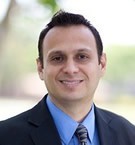Several years ago I had a Latin professor who made us memorize a phrase that it has been in my mind ever since. The Latin expression is “magister meus doctus est” and means “my professor is instructed or wise.” Obviously, my Latin professor was teasing when he made us memorize that phrase, but in reality, those words describe an important and profound truth. Everybody expects that professors are wise enough to guide their students. It has been commonly assumed that only those who know more can lead others in the right path because we know that nobody can give something without first possessing it. I have been a teacher in different countries and settings for twenty years now and I can testify about the accuracy of this general perception.
People usually associate wisdom with formal education at academic institutions. In fact, in colleges and universities worldwide the highest academic degree offered is the doctoral degree. The terms “doctor” and “doctoral” share the same Latin root than “doctus” or wise. After earning a doctorate and now teaching mainly in doctoral programs I know that the common understanding that equates wisdom with knowledge, although it is true to some extend, it fails to describe the complete reality. Although people who earn a doctoral degree become “experts” in an area of knowledge, true wisdom goes far beyond merely learning facts. A person could have many academic degrees without being wise and another one could be very wise without the benefit of being involved in higher education.
The book of James provides us with the complete perspective about true wisdom and how it can become clear and evident to everybody around us. The well-known chapter 3 deals with the importance of the tongue and its great influence for good and evil. In fact, this passage stars with a severe warning for anyone who desires to become a teacher since teachers use their tongues as key instruments to provide instruction and, therefore, they become more susceptible of receiving a stricter judgment because of their possible misuse of their tongues.
At the end of his vivid description about the tongue influence, James asks a very interesting question in verse 13, “Who among you is wise and understanding?” Posing this clear and direct interrogation, James confronts us with the complete meaning of wisdom. The answer he provides is surprising for our common standards because he argues that wisdom goes far beyond knowledge or understanding “Let him show by his good behavior his deeds in the gentleness of wisdom.” True wisdom, James reminds us, becomes evident in our behavior. Unfortunately, in the higher education world is uncommon to find highly educated scholars who are also humble at the same time. When this combination happens, these people become the exceptions when in reality they should be norm, especially in Christian higher education.
James also contrasts the wisdom that reflects the Creator and the one that goes completely against the divine ideal. James is very direct and clearly describes the characteristics of ungodly wisdom, “But if you have bitter jealousy and selfish ambition in your heart, do not be arrogant and so lie against the truth. This wisdom is not that which comes down from above, but is earthly, natural, demonic. For where jealousy and selfish ambition exist, there is disorder and every evil thing” (James 3:14-16).
On the other hand, godly wisdom manifests the following characteristics, “But the wisdom from above is first pure, then peaceable, gentle, reasonable, full of mercy and good fruits, unwavering, without hypocrisy. And the seed whose fruit is righteousness is sown in peace by those who make peace” (James 3:17-18).
Therefore, wise people demonstrate their wisdom through their behavior not through their knowledge or academic achievements. According to James, jealously and selfish ambition describe an earthly, natural, and demonic wisdom that completely misrepresents the Lord of the universe. These severe words are a strong warning against denominational, ecclesial, and academic disputes. True wisdom encourages peace and cordiality. Wise people are peaceful and those around them find refreshment in their presence.
Authentic wisdom is within everybody's reach and at the same time is always hard to attain. As the Scriptures reminds us, knowledge can produce arrogance, but love always edifies. It is my deep desire that my students, and everybody around me, could sincerely say about me “magister meus doctus est” when they observe my behavior. How wise are you? You do not need to answer this question using words, you are already doing it with your life and it is evident to everybody.
 Biola University
Biola University
.jpg)
.jpg)
.jpg)
.jpg)